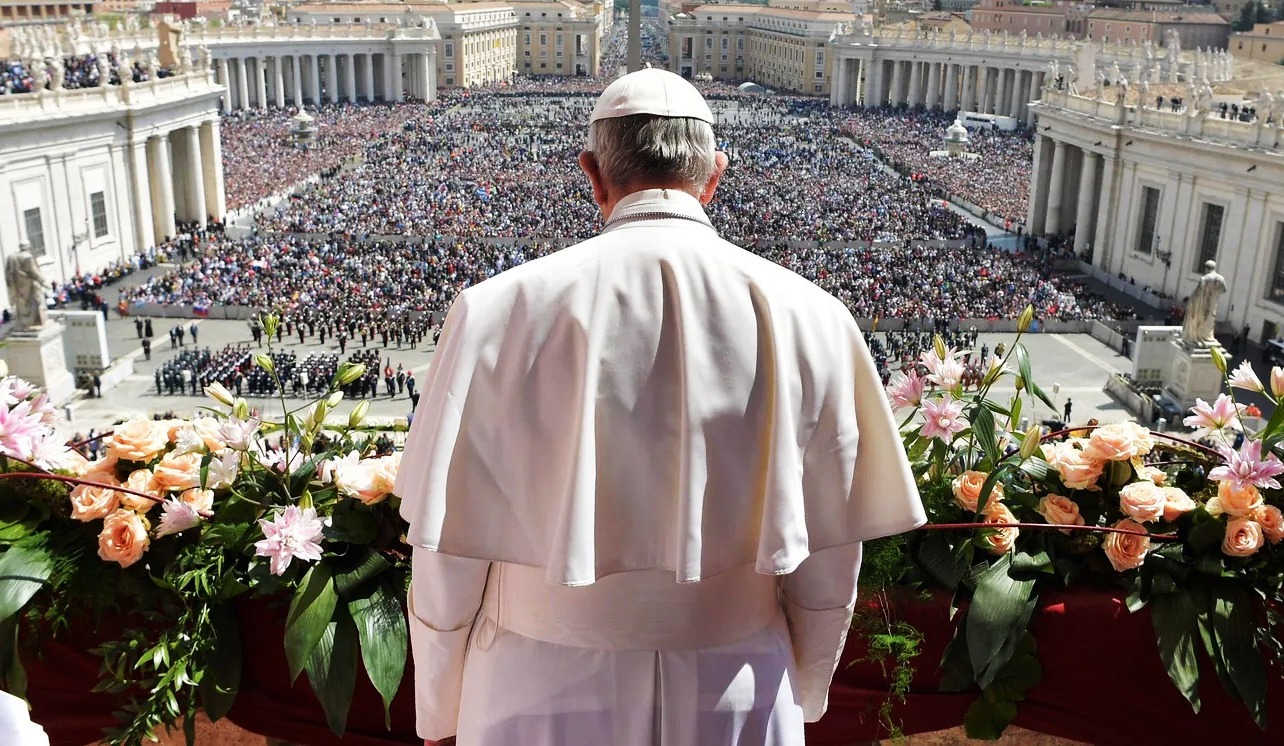 Protestants and Catholics are moving closer to promoting greater Christian unity and healing their long-standing differences. Catholic Culture, an online news website, is celebrating this effort and urging Protestants to come home even though these religious communions differ in their views on the role of Scripture, the Pope, the Virgin Mary, the saints, and a host of other issues.
Protestants and Catholics are moving closer to promoting greater Christian unity and healing their long-standing differences. Catholic Culture, an online news website, is celebrating this effort and urging Protestants to come home even though these religious communions differ in their views on the role of Scripture, the Pope, the Virgin Mary, the saints, and a host of other issues.
Nevertheless, Rome is moving quickly to unite all Protestant churches despite these opposing doctrinal positions. Their aim is to create a shared Eucharistic intercommunion in which all families of different denominations can eat the same bread and drink from the same cup—the cup of Rome (Revelation 17:5).
Catholic Culture published the following on October 18, 2024:
• “For some of my Protestant friends, though, to say the very date “October 31st” out loud, well, them’s fightin’ words. October 31st is Reformation Day. The date on which they celebrate Martin Luther saving the Gospel from the corrupt institution that hid it away from its deprived members.” [1]
• “Now, I fight for a living. But when it comes to Evangelical Protestants, I’m a lover, not a fighter. And what I want to say to my Evangelical friends, whom I love, is this. The Reformation is over. Come home.” [1]
• “It was the great Peter Kreeft, an author beloved by Catholics and Evangelicals alike, who said so in his remarkable little book, “Catholics and Protestants: What Can We Learn from Each Other?” Perhaps not coincidentally, Kreeft’s book was published in 2017, the 500th anniversary of the Reformation.” [1]
• “This is why Kreeft quotes the Protestant writer George Marsden, who first declared ‘the Reformation is over’.” [1]
• “The secret of true—not false—ecumenical progress, says Kreeft, is that ‘we love each other’s faith in Christ’.” [1]
• “For my part, I hope Evangelicals celebrate this upcoming Reformation Day by declaring, with Peter Kreeft and George Marsden, that the Reformation is over. And that they are coming home to the Catholic Church. Imagine the jolt it would give our culture if we at least moved closer to one another.” [1]
After centuries of enmity, the divisions between Protestants and Catholics are finally being healed today. Through ecumenical dialogue, mutual respect, and joint collaboration on social issues such as caring for the poor and disaster relief, Protestants and Catholics have finally reconciled the broken bonds and are moving towards a joint spiritual partnership. This is the fulfillment of the following declaration:
“The Roman Church is far-reaching in her plans and modes of operation. She is employing every device to extend her influence and increase her power in preparation for a fierce and determined conflict to regain control of the world, to reestablish persecution, and to undo all that Protestantism has done” (The Great Controversy, 565).
The Counter-Reformation started as soon as the Reformation began in order to respond to the rise of the Protestant Church throughout Europe. The purpose of the Counter-Reformation was to “undo all that Protestantism has done” by stopping the protest and bringing the Protestants back to the fold of Rome. This mission is being accomplished today.
There is hardly any protest any more among the churches that call themselves Protestant. Most Protestants have sold out and are returning en masse to Rome. We are told that the time has come to throw off the old condemnations. The papacy is no longer the antichrist. We are now brothers in Christ, and God wants us to live together in peace and unity—is the popular message today.
The truth is that the Reformation is far from over, as the need to stand against the distortions of truth by an apostate Christianity has become even more urgent in these last days. While the ecumenical movement seeks to unite all Christians, often under the banner of compromise, the reality is that Rome has not changed its core doctrines, which contradict many of the Bible’s teachings. Roman Catholics continue to promote traditions and human authority above the Word of God, positioning themselves as the main opponent against divine truth. Therefore, God calls on all faithful Christians to speak boldly, as the Reformers once did, and expose error while pointing people back to the purity of the Gospel.
In these times of increasing spiritual deception, we must uphold the truth of God’s Word and remain steadfast in proclaiming His everlasting gospel, untainted by the compromises of false unity.
“The papacy is just what prophecy declared that she would be, the apostasy of the latter times. 2 Thessalonians 2:3, 4. It is a part of her policy to assume the character which will best accomplish her purpose; but beneath the variable appearance of the chameleon she conceals the invariable venom of the serpent” (Great Controversy, p. 571).
Sources
[1] https://www.catholicculture.org/commentary/reformation-is-over/
Leave a Reply